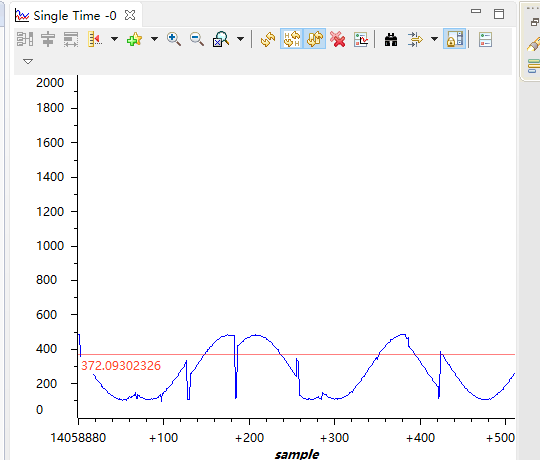Tool/software: Code Composer Studio
Hi all,
I met with some difficulties in using Sensor Controller Studio. I want to use the Sensor Controller Studio implement multiple continuous sampling by multiple ADC channels. In fact, there is no problem to run the program in the SCS,and sampling data is continuous . But when I put the process integrated into the CCS, when I put the sce ADC sampling data read out, found that is not a continuous waveform.So whether can go to solve this problem by multiple-buffered output data exchange .



